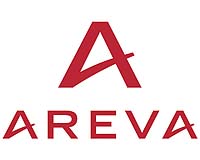 |
Brussels (AFP) Jan 11, 2010 The EU's new foreign affairs chief, Catherine Ashton, distanced herself Monday from her anti-nuclear past, as European lawmakers grilled her about her suitability for the post. "The relevance of the 1970s is not the relevance of 2010," she told deputies in Brussels. "I'm not a member of CND (Campaign for Nuclear Disarmament) and have not been a member of CND for 28 or 29 years. "I do not believe now that (the CND) strategy is appropriate," the 53-year-old Briton said in response to a question from Charles Tannock, a conservative MEP whose party is expected to take power in Britain this year. Ashton has been accused in Britain of taking funds from the former Soviet Union during her time as a treasurer of the CND, and it was feared the issue would be a thorn in her side during the parliamentary hearings. She has consistently denied the accusation. During the three-hour session, the former EU trade commissioner also urged Europe to respond to growing international calls for the 27-nation bloc to make its voice heard in the world. "I am convinced there is a clear call -- inside the EU and around the world -- for greater European engagement. To promote peace, protect the vulnerable, fight poverty and address the many problems of our time," she said. "We have to answer this call. Combining leadership and partnership. Defending our values and promoting our interests. Listening to what our partners say. And making sure that when we speak, our voice is heard." The session was the first in a series of US-style confirmation hearings to see whether Ashton and other would-be commissioners at the bloc's powerful executive arm are up to the job. Finland's Olli Rehn, who as nominee for economic and monetary affairs commissioner will help supervise policy on the euro single currency and ensure that budgetary rules are applied, was to be heard later Monday. The commission is in charge of drawing up legislation that impacts on the lives of half a billion Europeans, as well as policing the existing rules. It had a budget of 116 billion euros (174 billion dollars) in 2008. However many members of the parliament, bolstered by new powers from the Lisbon Treaty of reforms which entered force last month, are keen to flex their political muscle in public. Indeed many of Ashton's questions addressed technical and philosophical matters such as how the EU's foreign service should evolve given the powers it has under the treaty. The assembly, which holds the hearings in Brussels until Friday and in Strasbourg next Monday and Tuesday, cannot reject any individual commissioner but can vote down the entire team at its plenary session on January 26. Should it do so, commission President Jose Manuel Barroso, who has already been confirmed for a second five-year term, would be forced to seek a new candidate, or candidates, from the nations whose nominees are targeted. No obvious skeletons have been dragged from any closets this time although the hearings could create some surprises. In 2004, deputies rejected the candidature of Italy's Rocco Buttiglione, who had been in line to become the EU's top justice official but was considered inappropriate by them for his opposition to homosexuality. Other major hearings this week include Belgium's Karel De Gucht on Tuesday for trade commissioner and Spain's Joaquin Almunia for the powerful competition portfolio. Frenchman Michel Barnier, a controversial appointee as internal market and financial services commissioner, faces the lawmakers on Wednesday.
Share This Article With Planet Earth
Related Links Nuclear Power News - Nuclear Science, Nuclear Technology Powering The World in the 21st Century at Energy-Daily.com
 French nuclear group Areva to sell stake in Eramet: reports
French nuclear group Areva to sell stake in Eramet: reportsParis (AFP) Jan 7, 2010 The French state-controlled nuclear engineering group Areva is about to shed its 25.78-percent interest in nickel mining company Eramet to the strategic investment fund (FSI), press reports said on Thursday. Eramet, which notably has big nickel mining interests in the French Pacific territory of New Caledonia, would transfer its interest imminently to the FSI, an entity created by the French ... read more |
|
| The content herein, unless otherwise known to be public domain, are Copyright 1995-2009 - SpaceDaily. AFP and UPI Wire Stories are copyright Agence France-Presse and United Press International. ESA Portal Reports are copyright European Space Agency. All NASA sourced material is public domain. Additional copyrights may apply in whole or part to other bona fide parties. Advertising does not imply endorsement,agreement or approval of any opinions, statements or information provided by SpaceDaily on any Web page published or hosted by SpaceDaily. Privacy Statement |